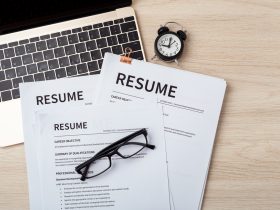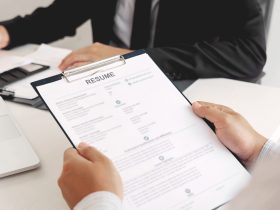The Power of an Effective Self-Introduction
Imagine entering an interview room filled with anticipation, nerves, and the desire to make a strong impression. Your ability to nail interview intros is your chance to set the stage, control the narrative, and showcase your qualities and experiences that align with the job role. An effective self-introduction is more than just a recitation of your resume; it’s a strategic tool that allows you to shape how the interviewers perceive you from the beginning.
Introducing Yourself in Interviews: Techniques that Work
Introducing yourself in interviews is a crucial step. This narrative should be short and contain essential details. The methods that will enable you to familiarize yourself effectively during the interview can be listed as follows:
Craft a Compelling Elevator Pitch
Giving an engaging and concise elevator pitch will help you introduce yourself effectively. An elevator pitch is a succinct summary of your background, skills, and career aspirations that can be delivered in about 30 seconds—the duration of a short elevator ride. Remember to tailor your pitch to the specific job role and company culture to demonstrate your alignment with their needs.
Weave a Story
Humans are wired to connect through stories. Utilize this natural tendency by weaving a brief personal or professional story into your self-introduction. For instance, you could talk about a pivotal career experience that ignited your passion for the field or share a challenge you overcame, showcasing your problem-solving skills. A well-told story attracts attention and stays in mind.
Emphasize Relevant Achievements
While introducing yourself, highlight your most relevant achievements that align with the job requirements. Ensure your achievements have measurable results. For instance, rather than simply stating that you increased sales, say, “I successfully increased sales by 30% within six months, contributing to a record-breaking revenue quarter.” This approach demonstrates the tangible value you bring to the table.
Confident Body Language
Body language communicates a lot before you start speaking. Walk into the interview room with a confident posture—shoulders back, head held high, and a genuine smile. Maintain eye contact as you introduce yourself, conveying that you are poised, self-assured, and ready to engage.
Clear and Enunciated Speech
Clarity in speech is crucial. Speak clearly to make it easy for others to understand what you are saying. A rushed or mumbled introduction can convey nervousness or a lack of confidence. Practice beforehand to achieve a balanced pace.
Firm Handshake
A firm handshake can strengthen communication. Offer a firm but not overpowering handshake as you introduce yourself. A handshake should exude confidence and professionalism. Avoid a limp or overly forceful grip.
Research the Company
Before the interview, thoroughly research the company. Incorporate your knowledge into your introduction by mentioning specific company achievements, projects, or values that resonate with you. This information demonstrates your genuine interest and preparation.
Address the Interviewers
If you’re talking to several interviewers, it’s helpful to call them by name. This showcases your attention to detail and respect for each person’s role in the interview process.
Express Your Excitement
Show your interest in the position and the company. Use positive language and convey your enthusiasm about the opportunity to contribute to their team. Sharing your enthusiasm for your skills leaves a memorable impression.
Self-Introduction Success: Practice and Preparation
Interview introduction tips allow for proper preparation and help you keep stress levels under control. Tips that facilitate the practice and preparation process can be listed as follows:
- Mock Interviews
Practicing introducing yourself is helpful for the interview. Practicing to simulate the actual job interview experience will help you manage your stress.
- Tailor for Each Interview
Avoid using a generic self-introduction for every interview. Adapt your introduction to suit the operation of the company you are interviewing with. Highlight the aspects of your experience that are most relevant to the role you’re applying for.
- Overcome Nervousness
Feeling nervous before an interview is natural, but excessive nervousness can hinder performance. Relaxation techniques such as positive thinking and deep breathing can make the process easier. Remember, a little adrenaline can enhance your alertness and performance.









